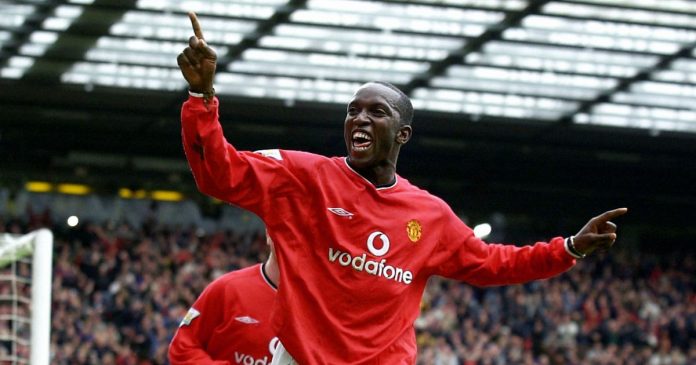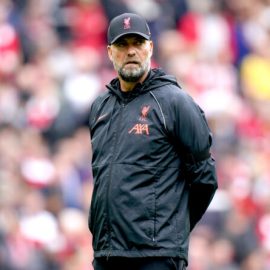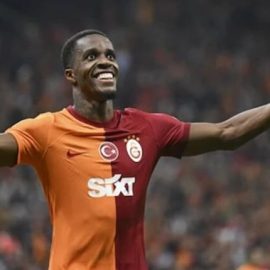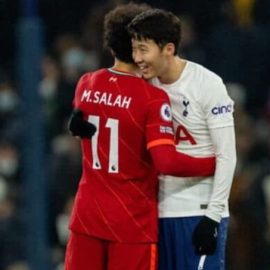Rafael Benitez signed a 5 year contract at Liverpool in the summer, and this is probably the only thing saving him from the proverbial noose. Its often cited his transfer policy is to blame, that he has been unlucky with injuries, and that his team is over-reliant on two players, but in truth, his failing is a social one.
Frank Lampard said in an interview the other day that of all the managers he has worked with, the best have been those with whom he has forged a special bond. Jose Mourinho and Carlo Ancelotti, he claimed, are two such exceptional people.
David Beckham, Ryan Giggs, Cristiano Ronaldo, to name but a few of the luminaries who have graced Old Trafford over the years, have all referred to Alex Ferguson as a ‘father figure’ at the club. Fergie’s influence goes so far at Old Trafford that when courting a youngster, he takes the time to meet and involve the parents, and, ask Lee Sharpe and Ryan Giggs, takes a keen interest in players private lives.
Try asking Arsenal greats such as Thierry Henry, Patrick Vieira, Dennis Bergkamp, or even someone such as ‘Cesc Fabregas what they think of Arsene Wenger, and it’s likely you’ll get a similar response. Ask the Barcelona players even, how they feel about Josep Guardiola – but what happens when you ask a Liverpool player about Rafael Benitez?
Fernando Torres summed it up perfectly in his book when he revealed the moment Benitez spoke to him just after he found out his wife, Olalla, was pregnant. Torres thought he was offering him congratulations, instead Benitez said: ‘“Just as we’d anticipated attacking the near post really paid off yesterday.”
This is a very interesting insight into Benitez’ personality and style of man-management, or rather, lack thereof. After all, this is the man who fell out with Xabi Alonso after he decided to stay home for the birth of his first child instead of board a plane for a champions league match against Inter Milan, and the man who, after Liverpool’s first leg victory over Real Madrid at the Bernabeu last season, didn’t even bother to congratulate the squad.
Dr Kerry Spackman, a renowned sports psychologist, once aided a top European football manager by comparing him to a conductor – “who knows the strengths and weakness of each musician, who trains and disciplines them, relentlessly, firmly, like a wise father educating and bringing up their children.” Does this sound like Rafa?
Whatever you say about the monetary rewards in the premier league, the sheer size of its worldwide audience and the passion it generates translates into huge pressure on a players psyche. Someone who is mentally weak will not survive. But kids are rarely born with these skills, they need to be taught, and in the same way a poor parent can affect a child’s outlook on life, so can a bad manager deeply affect a player’s confidence and self image.
Fergie has become one of the most successful managers in the game ever, not because of his transfer policy, although generally he has been successful in the market, not because he is a tactical genius, but because of the way he has nurtured talent and developed players who operate under a clearly defined philosophy. The same goes for Arsene Wenger. You just don’t hear stories about players Benitez has developed in the same way. He is always encouraging them to improve their skills and performance, but his inability to relate to his players on any other level than football, has had a cumulative negative effect on his team.
Social psychologists now accept that human beings are ‘wired to connect’. We feed of each others emotions and the neural ballet that occurs between a team of players when they are in tandem and on the same wavelength accounts for the phenomenon of a team becoming greater than merely the sum of its individuals.
At Liverpool, players like Ryan Babel have never really been given an extended chance because they are hauled off or dropped at the first sign of a slip, the result mentally, is that the next time Babel steps on the pitch he will be too anxious about making a mistake. His dissatisfaction grows, and that negativity spills over into the dressing room and affects the harmony of the squad and by extension, the synchronicity of the team.
It’s even worse when one of your star players is unhappy. Steven Gerrard has said he was heartbroken at the club’s decision to sell Xabi Alonso, and this psychological trauma has probably been ignored by Benitez, even though it’s a toxic emotion that will have spread insidiously throughout the squad.
Many coaches have ruled with fear as an element of their power, as David Beckham recently said about Alex Ferguson, but for this to be truly effective, there has to be an element of affection too. Look at the difference between Benitez and Jose Mourinho, who is gifted at handling people and undoubtedly has worked and studied hard on psychology. Even though his teams don’t always play the best football, the man has a fantastic record and hasn’t lost a home game with any club since 2003. More importantly, he has won league titles consecutively.
Rafa Benitez has an excellent record as a manager; he is an extremely shrewd tactician, and is meticulous in his match preparation. He can be overly cautious, but his teams, from Valencia to Liverpool last year, usually play a high standard of attractive football and score goals. But, for a team to be greater than the sum of its parts, and for that team to endure and progress over a period of seasons, and furthermore for Benitez himself to take his own ability to the next level, he must surely examine and try to rectify his own social failings. As it stands, he lacks the skills to repair the discord that has infected Anfield.
Add Sportslens to your Google News Feed!






